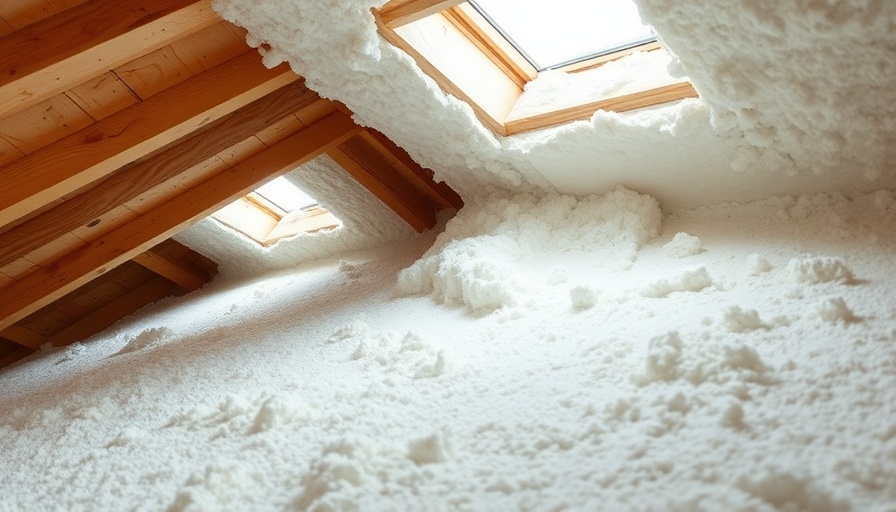
Major Concerns Arise as Surveyors Discover Defects in Homes with Spray Foam Insulation
Recent findings indicate that over 33% of homes utilizing spray foam insulation are plagued by significant defects, raising alarms among residents and financial institutions alike. This survey, conducted by the Property Care Association (PCA), highlights a troubling trend for homeowners who opted for what they believed would be a cost-effective and energy-efficient solution.
As the PCA joins forces with the HomeOwners Alliance to demand governmental interventions, homeowners are left grappling with the potential fallout of hidden construction issues. Surveyors have recommended substantial repairs for many of these properties, including insulation replacement and even re-roofing. This is particularly alarming, as such costs can accumulate quickly, putting financial strain on families aiming to maintain their homes.
Why Understanding Home Inspections Matters for Financial Services
The implications of these findings are far-reaching for financial service providers. With a significant percentage of homes at risk of devaluation due to inadequate insulation, lenders may hesitate to offer mortgages on affected properties. As highlighted by the report, many homeowners face barriers not just in selling their homes but also in accessing equity release options, potentially locking them into financial difficulties.
How the Government’s Role Fits into the Equation
Chief executive of the HomeOwners Alliance, Paula Higgins, stressed the gravity of the situation, asserting that many homeowners were incentivized by government grants to install spray foam. The lack of accountability from these schemes raises questions about the protection processes in place for homeowners.
As these discussions progress, there is a clear need for accountability from both government bodies and manufacturing standards. The PCA's push for action reflects growing concerns that homeowners should not foot the bill for issues stemming from products promoted as beneficial.
Protecting Homeowners from Exploitative Practices
Another worrying trend is the rise of cold callers seeking to exploit homeowners’ vulnerabilities regarding spray foam removal. The PCA and HomeOwners Alliance advise householders to be vigilant and report suspicious activity, urging them to protect their interests amid an already challenging situation.
For financial institutions, staying abreast of these developments is critical. As the landscape shifts due to these structural concerns, understanding how they affect property values and lending practices will be vital in safeguarding both lenders and homeowners alike.
What Financial Institutions Can Do
It is essential for mortgage lenders and financial services to reevaluate their policies regarding properties affected by spray foam insulation. By fostering educational initiatives aimed at both consumers and mortgage brokers, they can ensure that all parties are aware of potential risks and remedies. Additionally, collaborative efforts to work with regulatory bodies could help prevent future missteps.
In conclusion, it is imperative that financial service providers take proactive steps in understanding and mitigating the risks associated with spray foam insulation defects. Remaining informed and prepared will not only protect their interests but also serve the communities they support.
 Add Row
Add Row  Add
Add 




 Add Row
Add Row  Add
Add 


Write A Comment